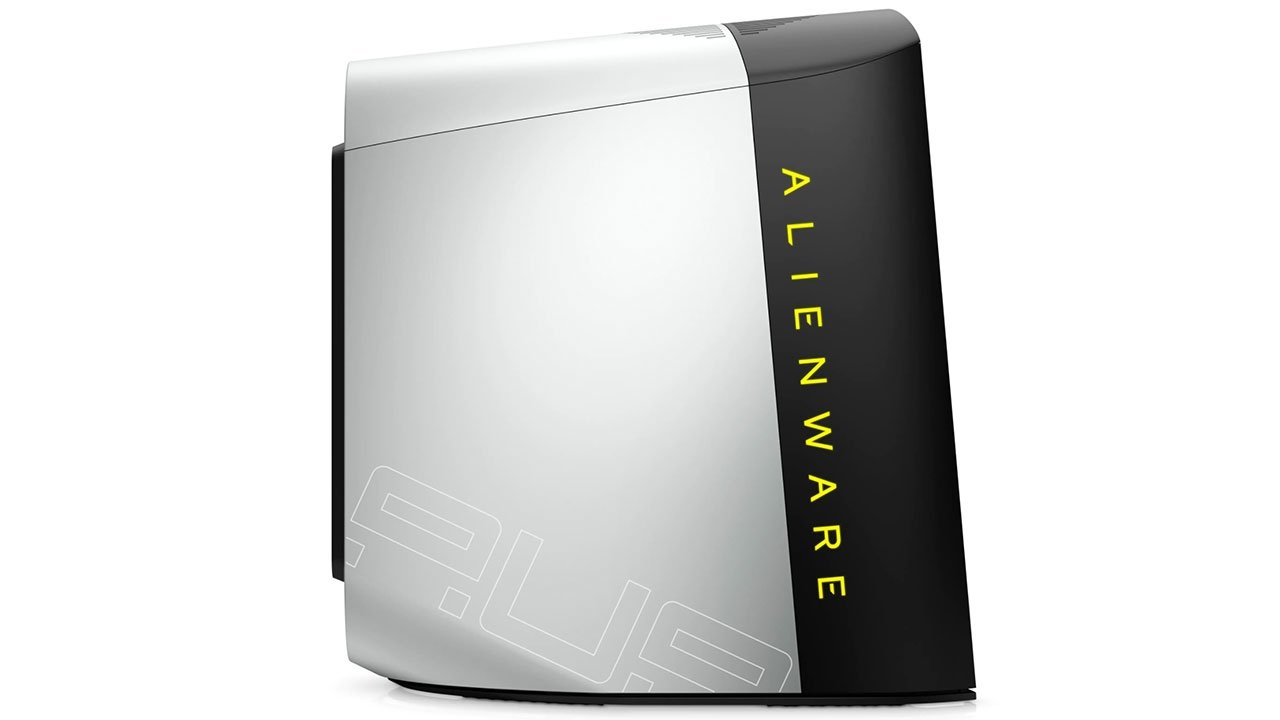Six U.S. states have implemented new regulations on high-performance PCs, saying the energy-hungry computers contribute to increased utility fees and green house gas emissions.
Following the institution of a California energy bill, California, Colorado, Hawaii, Oregon, Vermont, and Washington recently adopted new energy consumption standards that impact sales of certain pre-built PCs, reports The Register.
In response, Dell recently yanked all but two of its Alienware gaming desktop models in the affected regions. The sales stoppage appears to nearly run the gamut of available configurations and includes machines with Intel and AMD processors, as well as those sporting high-end Nvidia and AMD Radeon GPUs.
Disclaimers posted to Dell's website read:
This product cannot be shipped to the states of California, Colorado, Hawaii, Oregon, Vermont or Washington due to power consumption regulations adopted by those states. Any orders placed that are bound for those states will be canceled.
Dell confirmed the decision in a statement to the outlet, saying California's energy regulations are to blame.
"Yes, this was driven by the California Energy Commission (CEC) Tier 2 implementation that defined a mandatory energy efficiency standard for PCs - including desktops, AIOs and mobile gaming systems. This was put into effect on July 1, 2021. Select configurations of the Alienware Aurora R10 and R12 were the only impacted systems across Dell and Alienware," the company said.
As the regulations apply to pre-configured computers, buyers might be able to skirt the restriction by customizing their order.
A CEC spokesperson told The Register it was not aware of any vendor disruptions in California caused by the Tier 2 rules.
It is unclear if Apple's top-end Mac, the 2019 Mac Pro, falls under the purview of the states' energy consumption restrictions. According to Apple, a well-equipped Mac Pro with a 2.5GHz 28-core Intel Xeon W processor, two Radeon Pro Vega II Duo MPX Modules, 1.5TB RAM, Afterburner card, and a 4TB SSD consumes 302W at idle and a whopping 902W when its CPU is maxed out. Those figures are much higher than specifications quoted by Dell (PDF link) for an Alienware Ryzen Edition that no longer ships to the six states.
As noted by The Register, hardware requirements vary depending on device type and configuration, so it is possible that Mac Pro falls within CEC guidelines.
AppleInsider has reached out to Apple for comment.
California in 2016 approved a pioneering set of regulations regarding energy efficiency limits for computers as the state worked to meet climate policy goals, the report said. A CEC staff report published at the time noted computers and monitors accounted for about 3% of residential and 7% of commercial energy use in the state.
A subsequent study published in 2019 took a closer look at computer gaming and its effect on power consumption. According to the report, gaming PCs in California consumed 4.1 terawatt-hours per year in 2016, equating to $700 million in energy bills and 1.5 million tons carbon dioxide-equivalent emissions. That accounted for one-fifth of all electricity use assigned to the residential "miscellaneous" category.
Within all energy consumed by gaming equipment, 66% went to consoles, 31% to desktops, 3% to laptops and less than 1% to "emerging media streaming devices," the CEC found. Despite accounting for a bulk of California's gaming energy toll, consoles are not affected by the new regulations.
 AppleInsider Staff
AppleInsider Staff







-m.jpg)






 Mike Wuerthele
Mike Wuerthele
 Malcolm Owen
Malcolm Owen

 Amber Neely
Amber Neely
 William Gallagher
William Gallagher




-m.jpg)






30 Comments
It more likely that consoles rank a higher percentage because there are far more of them than gaming computers. That make the comparison moot.
Apple could’ve run 100 mockery ads telling people why they should get an M1 Mac instead of Intel
Another reason you couldn't pay me to live in California. Those other states dont have much draw either.
Are these regulations just looking at power consumption? Or are they looking at efficiency? You can have lots of very inefficient computers that use lower levels of power. Yet there are many more of these computers than high end gaming machines. Overall it’s a stupid concept. Especially if you can bypass the regulations by purchasing a custom configured system. And what of the academics who use high end computers, even off the shelf systems, for research? Do I not have the freedom to choose PC gaming as a leisure activity? Somehow that’s being viewed as evil. Next thing you know Governor Newsom will be at my door demanding I get vaccinated and taking away my “inefficient” gaming computer. Freedoms lost. Tyranny is next.